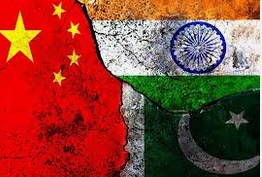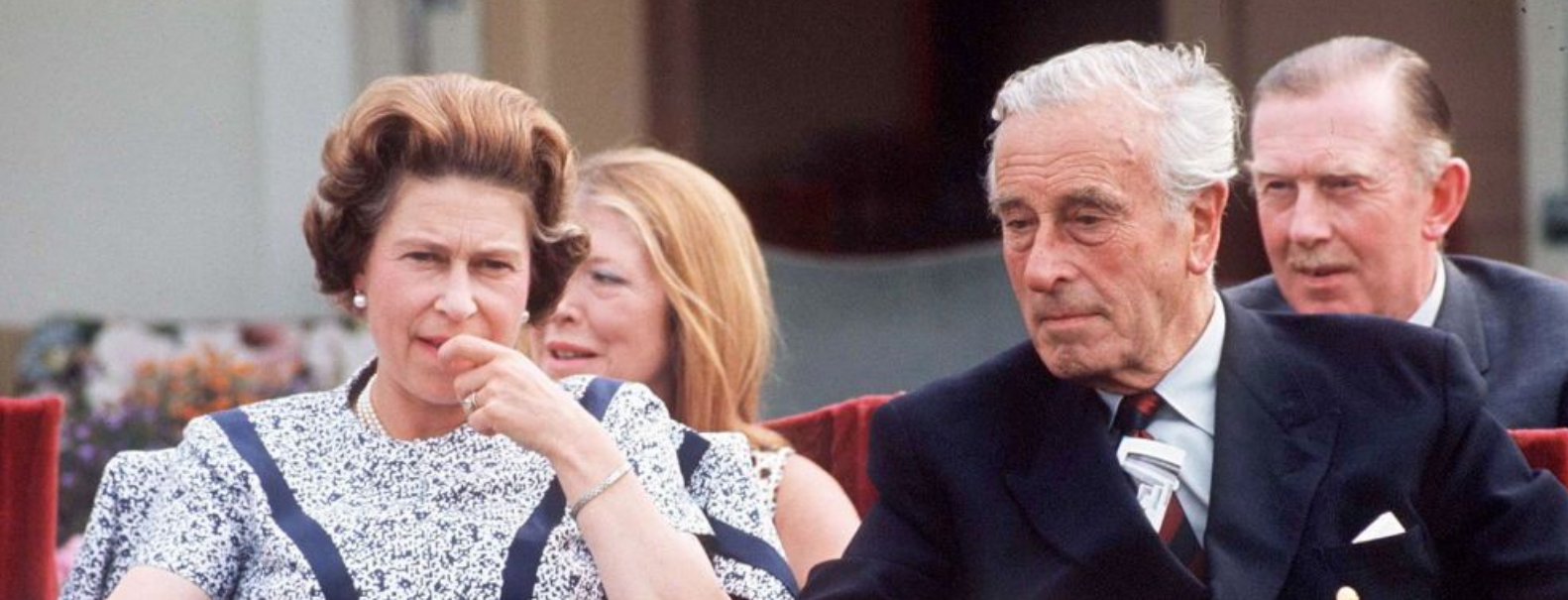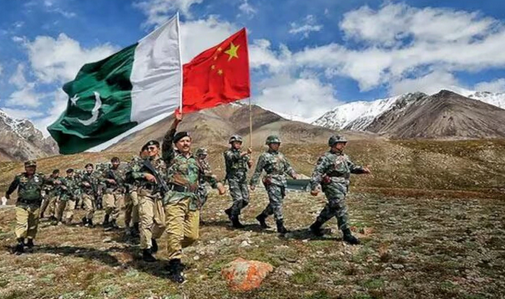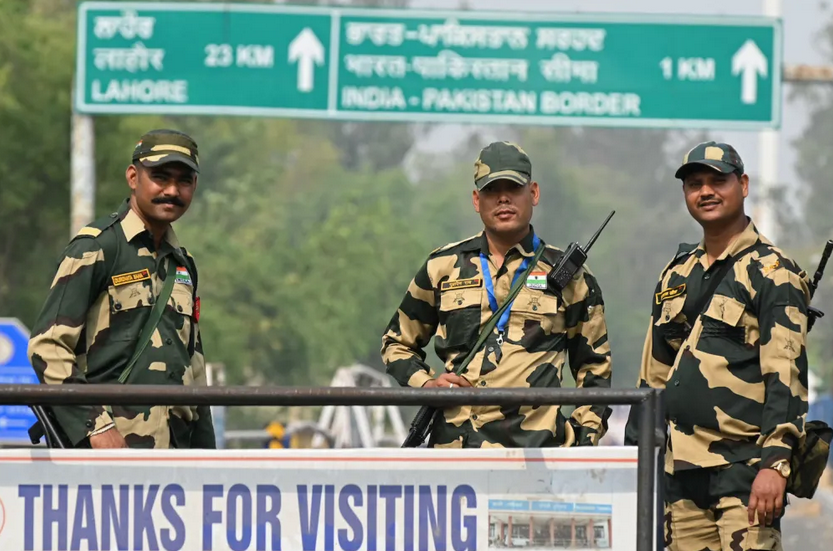A word about WTAF is going on in India

Seventy-five years after the British flag came down in Delhi, South Asia remains tangled in a mess that wasn't of its own making. The instability between India, Pakistan, and China isn’t just about modern nationalism or border disputes, it’s the festering consequence of empire. At the centre of this catastrophe stands Lord Louis Mountbatten, the last British Viceroy. In 1947, he oversaw what can only be described as an imperial hit-and-run. Obsessed with prestige and anxious to wrap things up before the British Empire fully collapsed, Mountbatten rushed the Partition of India, pushing the timeline forward by months. The result was catastrophic: over two million people were killed, fifteen million uprooted, and borders were drawn with little regard for the cultural, ethnic, or geographic realities on the ground.Mountbatten’s betrayal wasn’t just of India or Pakistan, it was a betrayal of humanity. His role in slicing apart the subcontinent with brutal efficiency created the unresolved crisis of Kashmir and laid the groundwork for the region's long descent into militarised nationalism and nuclear brinkmanship.
No other region represents this imperial fallout more clearly than Kashmir. It wasn’t supposed to become the most dangerous piece of real estate on Earth, but thanks to Britain's sloppy and self-serving exit, that’s exactly what it became. Kashmir was left in limbo: a Muslim-majority state whose Hindu ruler acceded to India, sparking immediate conflict. Since then, it has been at the centre of three wars between India and Pakistan, as well as countless skirmishes, proxy insurgencies, and political betrayals. Meanwhile, to the east, India and China continue to contest a border that was never properly demarcated: only imagined by colonial-era British surveyors who never had to live with the consequences of their maps. India claims Aksai Chin, which China controls. China claims Arunachal Pradesh, which India governs. The Line of Actual Control separating them is not a line at all, but a shared fiction backed by soldiers, surveillance, and the constant threat of war.

Mountbatten: A POS Royal who liked young boys and betrayed India and Pakistan, resulting in millions of deaths
History has already shown how quickly things can escalate in this region. In 1962, India and China went to war over their border. India, underprepared and diplomatically isolated, was swiftly defeated. The war ended because China chose to withdraw, not because it had to. That withdrawal was not mercy, it was strategy. India and Pakistan have fought four wars. The first two, in 1947 and 1965, were directly over Kashmir. The third, in 1971, was a different beast. Pakistan’s genocidal crackdown in East Pakistan (now Bangladesh) led India to intervene. The result was the breakup of Pakistan and the birth of Bangladesh. This was not merely a military victory, it was a geopolitical earthquake. The fourth conflict, the Kargil War in 1999, occurred after both India and Pakistan had become declared nuclear powers. Pakistani troops and militants infiltrated positions on the Indian side of the Line of Control. India responded militarily, and the situation teetered on the edge of disaster. It was only under heavy US diplomatic pressure that Pakistan agreed to withdraw. This was a near-miss, proof that nuclear weapons don’t prevent war; they just raise the stakes. Even more recently, in 2020, India and China clashed in the Galwan Valley. Soldiers fought with fists, clubs, and iron rods in the icy Himalayas. Guns weren’t used, not out of principle, but due to pre-existing border agreements. Still, dozens died. In the 21st century, two nuclear powers were reduced to medieval combat in a high-altitude death match. If that doesn’t illustrate the volatility of this region, nothing will.
Today’s situation is far more combustible than in the past. All three countries, India, Pakistan, and China possess nuclear weapons. And the safeguards that once existed to prevent disaster are either eroding or already gone. India is increasingly aligned with the United States and its strategic partners like Japan and Australia. Pakistan, plagued by economic crisis and political chaos, is more deeply dependent on China than ever. China itself is becoming more aggressive, not just in South Asia, but across the Indo-Pacific, from Taiwan to the South China Sea. And Trump is intimating that he 'Wants his war with Chyna'. Meanwhile, the world is already buckling under the weight of other conflicts. The war in Ukraine, Israel’s campaign in Gaza, the powder keg of Iran and the Gulf, the tensions surrounding Taiwan: global diplomacy is overloaded. Should a major incident occur in Kashmir or Ladakh, the bandwidth for crisis management may simply not exist.

So far, full-scale war has been avoided for three reasons. First, the sheer destructiveness of nuclear weapons has a chilling effect. Mutually Assured Destruction remains a deterrent, even for regimes prone to reckless rhetoric. Secondly, economic interdependence matters, at least for now. India and China are major trading partners. A war between them would cripple both economies and send shockwaves through global markets. Third, external diplomatic pressure has often been decisive in the past. The United States, Russia, and Gulf states have stepped in during previous crises to force restraint.
As someone on the left, it seems to me that the lesson is clear: these are not just post-colonial conflicts. They are the living legacy of the failed British Empire. The chaos left behind in 1947 is not history, it’s the present. Britain’s role in creating this disaster must be acknowledged, not buried beneath layers of royal nostalgia and denial. The political classes in all three countries use these conflicts to justify authoritarianism, surveillance, censorship, and militarism. From India's clampdown on Kashmir, to Pakistan’s embrace of extremist proxies, to China’s high-tech surveillance and border expansion, war or the threat of war becomes a justification for the erosion of civil rights. If a wider war breaks out, it won’t be about ideology. It will be about unresolved borders, wounded national pride, and the imperial cartography of a long-gone empire. It will be the final act in a play Mountbatten and the British Raj set in motion: a tragedy that still hasn’t ended.

One final thought - we need to lear from history. Even though the great powers went to war in 1914, there were proxy wars in the Balkans and North Africa for years before. When the war started, it begin in Sarajevo, a small city in Eastern Europe that most people had never heard of. In 1939, the war didn't start with a clash of great powers - it started with the appeasement on Czechoslovakia and the invasion of Poland.
If we want peace in South Asia, and the world, we must begin by confronting the truth: the empire never really left. It just handed over the guns, then walked away.
World War III, is probably already here, if it expands, it may not be in the cities of Europe or the seas of East Asia. It may begin in a mountain pass in Kashmir, on a cold morning, with a skirmish that spins out of control. And if it does, the architects of empire will be laughing from their graves.
The world has gone mad. If you enjoyed reading this, please feel free to look at the rest of the blogs on www.TetleysTLDR.com. They're free to view, there's no paywall, they aren't monetised and I won't ask you to buy me a coffee. Also please free to share. Just a leftie, standing in front of another leftie, asking to be read. All the best, Tetley

